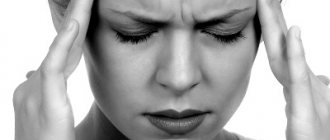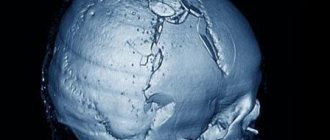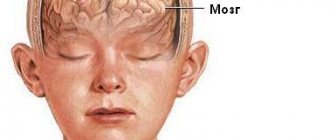- general information
- Causes
- Symptoms
- Consequences
- How to avoid
- Treatment
- Conclusion
Attention! Drug use causes irreparable harm to health and poses a danger to life!
Ethanol and its metabolites have a toxic effect on neurons. Systematic abuse triggers degenerative processes in the central nervous system. Alcoholic epilepsy occurs in the absence of structural damage in the brain and is considered a severe consequence of chronic intoxication. A favorable prognosis is possible only if you completely abstain from alcohol and undergo a rehabilitation course.
general information
Alcoholic epilepsy is a pathological condition that develops in response to prolonged intoxication with ethanol and its breakdown products. The pathological condition is not always characterized by the occurrence of convulsive attacks.
Alcoholic epilepsy is a secondary neurological disorder (symptomatic). Chronic alcoholism leads to damage to neurons in the brain. Disruption of electrical conductivity between neurons causes convulsive paroxysms. The pathological condition often develops in patients with alcoholism. But there have been isolated cases where a single use of a large dose of ethanol led to a seizure.
The term alcoholic epilepsy was coined in 1883. The condition was characterized by the occurrence of convulsive seizures in alcoholics. The root cause has always been organic damage to brain cells due to the toxic effects of ethanol. Almost all patients have a history of traumatic brain injuries of varying severity.
Convulsive syndrome in alcoholism / V.V. Donskoy, N.S. Sukhanova, A.M. Gusev, M.V. Kolontai – Omsk Psychiatric Journal. — No. 2 (2). – 2014.
Almost 30% of chronic alcoholics suffer from alcoholic epilepsy. Frequency of seizures depending on the stage of alcoholism:
| Alcoholism stage | Probability of occurrence |
| I | 17 – 20 % |
| II–III | 60 – 64 % |
| III | 17 – 19 % |
In all cases, the attacks occurred against the background of prolonged and daily drinking of alcohol. But at the same time, there were no epileptic signs on the EEG.
In the international classification of diseases, alcoholic epilepsy is not assigned a code. This condition is considered within other categories or subcategories of diseases.
The term alcoholic epilepsy characterizes several pathological conditions:
- An epileptic seizure is a single or episodic reaction of the central nervous system, against the background of alcoholic excess in persons who do not suffer from alcoholism. The reaction occurs as a result of a post-intoxication state (hangover);
- Episyndrome – systematic attacks. Occurs as a result of chronic alcoholism;
- True alcoholic epilepsy is episodic or systematic seizures with convulsive or non-convulsive status.
Seizures with systematic alcohol abuse are considered harbingers of alcohol psychosis.
Get help now
Do any of your relatives or friends have an addiction? Have you tried in every possible way to help, but as a result the person still returned to his past life?
You are not the first to encounter this problem, and we can help you.
We guarantee anonymity, we will persuade you to undergo treatment, and we will help you choose a center.
Call us
+7
or
Call me
How to recognize the onset of a seizure
Epilepsy, which developed against the background of alcoholism, provokes a change in human behavior. The addict experiences nervous overexcitation, outbursts of rage, sleep disturbances, and nervousness.
An epileptic seizure has similar features to a traditional seizure:
- loss of consciousness;
- pale skin;
- rolled eyes;
- foaming from the mouth;
- vomit.
At the time of a seizure, a person loses control of movements. The patient begins to bend in unnatural positions and throw back his head. With the sudden onset of an epileptic attack, alcoholics are likely to injure themselves; they can bite and even swallow their own tongue.
When the seizure ends, the person usually falls asleep exhausted. It happens that the patient sees hallucinations and nightmares. These nuances distinguish an alcoholic epileptic seizure from a traditional one.
Causes
The root cause of alcoholic epilepsy is often organic damage to brain cells as a result of a “toxic attack.” This is preceded by a long “experience” of abuse or periodic use of surrogate alcohol.
But there are also risk factors that can cause an attack, regardless of the duration of alcoholism:
- History of traumatic brain injury;
- Cerebrovascular pathologies;
- Compounded hereditary history (epilepsy);
- Neuroinfections.
Alcohol seizures are considered to be quite rare and the most severe symptom of chronic alcoholism.
It is believed that a pathological symptom appears with a continuous history of alcoholism of at least 7–10 years. But there are known cases of seizures occurring after 1–2 years of systematic abuse.
Chronic alcoholism causes metabolic disorders in the central nervous system. Intracellular disorders are characterized by a failure in the transport of calcium and chlorine, as well as dysfunction of gamma-aminobutyric acid receptors. Pathological metabolic effects are temporary and disappear completely after alcohol withdrawal.
Clinical and neurophysiological features of epilepsy in alcohol abusers / V. O. Generalov, T. R. Sadykov, A. I. Fedin, Yu. V. Kazakova, L. P. Mishnyakova, E. V. Amcheslavskaya - Bulletin of the Russian State Medical University. - No. 5 - 2009. - 45 - 46 p.
What is alcoholic epilepsy?
Alcoholic epilepsy includes a number of physiological conditions in which the patient experiences convulsions, seizures, automatic actions or disturbances of consciousness. This disorder is classified as a psychotic disorder that occurs mainly at the third stage of addiction development.
The disorder most often manifests itself in men aged 25 to 50 years who have suffered from alcoholism for 5-10 years. But sometimes epilepsy occurs after 2-3 years of regular alcohol consumption, this is especially true for young people and adolescents whose psyche has not yet fully developed.
Symptoms of seizures in alcoholism
Long-term drinking bouts and regular intoxication of the body with ethanol products lead to disruptions in the functioning of all organs. Epilepsy is cumulative in nature - its symptoms are invisible in the first stages of the disease. The disease is most dangerous when consuming alcohol substitutes, since in this case, in addition to alcohol poisoning, other toxic substances also affect the body.
An epileptic seizure can occur both in a state of severe alcoholic intoxication and in a state of hangover, on the 1-2 day of alcohol withdrawal. The symptoms of the disease are quite varied and largely depend on the lesions.
In general, symptoms of epilepsy can be as follows:
- Blue skin;
- Loss of orientation in time and space;
- Cognitive impairment;
- The appearance of acute or pressing muscle pain and headaches;
- There is a growing feeling of anxiety, irritability, outbreaks of aggression and hysteria are possible;
- The person may utter meaningless phrases.
Unlike other types of epilepsy, before the onset of an alcoholic seizure, a person develops obvious disturbances in consciousness and thinking. His mood changes sharply, excessive activity appears, and auditory hallucinations are possible.
Causes of epileptic seizure from alcohol
The development of alcohol dependence leads to irreversible changes in the nervous system and cerebral cortex. As a result of pronounced changes in brain function and metabolism, alcoholic epilepsy develops. It manifests itself in convulsive and non-convulsive forms.
The occurrence of epileptic conditions themselves is most often associated with:
- Lack of magnesium, potassium, B vitamins;
- Metabolic disorders associated with the influence of alcohol on the body;
- 2-3 days after a long binge, a large amount of glutamate accumulates in the body, provoking an attack of epilepsy;
- An excess of gamma-aminobutyric acids, which overexcite neurons and provoke convulsive reactions;
- Damage to natural “barriers” that protect the brain from the effects of alcohol toxins;
- Problems with the liver and pancreas.
The main factor provoking the occurrence of an epileptic seizure is blood thickening during the onset of withdrawal syndrome. This greatly slows down blood flow and disrupts the nutrition of nerve tissue, resulting in oxygen starvation, which causes a withdrawal attack.
Symptoms
An attack of true alcoholic epilepsy is a harbinger of alcohol withdrawal. That is, a seizure always occurs as a result of alcohol withdrawal after prolonged or periodic ethanol intoxication. The pathological condition develops several days after withdrawal or against the background of a sharp decrease in the daily dose of alcohol.
During an alcoholic seizure, the clinical picture is homogeneous. But the severity of symptoms and the nature of manifestations may differ.
| Alcoholism stage | Probability of occurrence |
| I | 17 – 20 % |
| II–III | 60 – 64 % |
| III | 17 – 19 % |
An attack of alcoholic epilepsy occurs suddenly and without warning. Sometimes there is an atypical scenario of a non-convulsive seizure. A person falls into a kind of stupor, after which a disorder of speech and thinking occurs. The moment of the attack is completely amnesic.
Narcologists noted that in a state of alcoholic intoxication the convulsive threshold is high, so seizures do not occur. But with the formation of withdrawal syndrome, the convulsive threshold becomes significantly lower. Before an attack, anxiety increases, and visual or auditory hallucinations may occur. In isolated cases, before fainting, victims feel a second of numbness in the leg. The attack lasts on average 3 minutes and in most patients occurs while awake.
A severe form of epileptic seizure is considered to be a recurrence of a seizure after a short time interval - a transition to epileptic status.
After an epileptic seizure, the victim regains consciousness and feels overwhelmed. Sleep sets in for a few hours. In some patients, a full-blown attack does not occur. A day after stopping alcohol, only burning pain in the muscles occurs.
Second group
Clinical features:
— convulsive attacks of epilepsy occur both during periods of sobriety and after heavy drinking in a state of abstinence;
- generalized convulsive seizures with loss of consciousness during the period of sobriety can develop even several years after the cessation of alcoholism (sudden loss of consciousness, accompanied by a cry and a sharp fall, forced turning of the head and eyes to the sides, after which tonic and clonic convulsions of the arms and legs develop, drooling ).
- such patients may develop epistatus (convulsive attacks follow one after another, cardiac arrest is possible), during which the patient may die.
Diagnostics:
- when performing an EEG while awake, epileptic activity is detected only in 30-40% of patients;
- conducting an EEG during sleep is more informative - in 100% of cases epileptic activity is recorded with localization in the hippocampus.
Treatment:
— treatment of alcoholism in order to keep the patient sober;
- You need to take anticonvulsants on an ongoing basis.
Consequences
Alcoholic epilepsy is not characterized by personality changes of the epileptic type. But chronic alcoholism, as a rule, leads to degradation. Therefore, attacks aggravate existing changes in personality traits and cognitive sphere (deviant behavior, irritability, anger, decreased intellectual abilities).
When epileptic seizures with convulsive syndrome occur, in 100% of cases, patients are diagnosed with alcoholic encephalopathy, which is characterized by irreversible degenerative changes in the brain.
Complications:
- Traumatic brain injury during a seizure;
- Development of psychotic disorders;
- Retraction of the tongue during an epileptic attack or aspiration of vomit;
- Stopping breathing;
- Cognitive changes;
- Disability.
The frequency of seizures in alcoholic epilepsy does not exceed 2–3 episodes per year. But its danger lies in its transition to a chronic form. Attacks no longer occur against the background of intoxication, but even during a long period of sobriety. This is due to the formation of a pathological focus of excitation in the brain, which causes an epileptic attack.
In chronic alcoholism, epileptic activity is detected on the EEG. That is, the mechanisms of epileptogenesis were launched in the hippocampal parts of the brain - a carrier of epileptic activity. Continuation of alcoholism will lead to the manifestation of unprovoked epileptic seizures.
Alcoholic epilepsy / V.O. Generalov, T.R. Sadykov, Yu.V. Kazakova, V.G. Amcheslavsky, E.V. Amcheslavskaya, S.A. Likhachev, E.V. Veevnik - a manual for doctors. – Moscow – Minsk. – 2014. – 6 – 13 p.
Types of alcoholic epilepsy
Beer epilepsy
Beer drinks and other alcoholic substitutes are very strong provocateurs of epileptic conditions, since, in addition to alcoholic toxins, they contain a large number of other substances that poison the body.
Another danger of beer is drinking the drink in large quantities. Many people consider low-alcohol drinks to be harmless, so they consider it normal to drink liters of them. As a result, acute intoxication with toxins occurs, which can provoke an attack of epilepsy.
Acquired epilepsy from alcohol
Drunken epilepsy is an acquired disease that develops against the background of pathological changes that arise due to addiction. Epilepsy most often occurs after binge drinking, with sudden withdrawal of alcoholic beverages. Frequent attacks due to severe alcohol intoxication or a hangover lead to the disease becoming chronic. Then attacks can be observed even with complete sobriety.
Hangover epilepsy
Epilepsy after heavy drinking occurs when there is a sharp decrease in the concentration of alcohol in the blood. Most often this occurs in a hangover after prolonged use, when the level of the convulsive threshold decreases.
Treatment
An epileptic seizure can occur at any stage of alcoholism. It is impossible to cope with the disease on your own. A generalized attack of alcoholic epilepsy is a life-threatening condition. Therefore, treatment is carried out only in a hospital setting.
There is no specific therapy for alcoholic epilepsy. Drug treatment is carried out to maintain the functioning of vital organs and systems. And also to reduce the risk of secondary complications. The main condition for a favorable prognosis is complete abstinence from alcohol.
Symptomatic therapy:
- Stopping a convulsive attack. Systematic use of anticonvulsants to increase the seizure threshold;
- Prevention of cerebral edema and cardiovascular pathologies - forcing diuresis;
- Muscle relaxants;
- Maintaining water and electrolyte balance;
- Rehabilitation therapy – vitamins, nootropics.
After stabilization of the condition, it is recommended to undergo comprehensive rehabilitation in specialized institutions. With timely treatment of alcoholism, the prognosis is usually favorable.
One of the most important stages of alcohol addiction rehabilitation is psychotherapeutic correction. Its tasks and specific techniques change at each stage of the treatment process. It is especially important that the patient acknowledges his problem and the need for treatment.
Fundamentals of narcology: textbook. Benefit /M. M. Burkin, S. V. Goranskaya. – Petrozavodsk. : Karelia, 2002. – 71 – 73 p.
First aid for alcoholic epilepsy
Epilepsy is a very serious disease that threatens human life, which is impossible to cope with on your own. Therefore, full treatment of the disease is carried out only in medical institutions.
Before the ambulance arrives, it is important to protect the person so that during an attack he cannot harm himself. It is necessary to lay him on the floor, put something soft under his head, and remove heavy and hard objects from his reach. To prevent the tongue from sinking, it is necessary to lay the victim on his side; a rolled up towel should be placed in the mouth to prevent strong clenching of the teeth.








